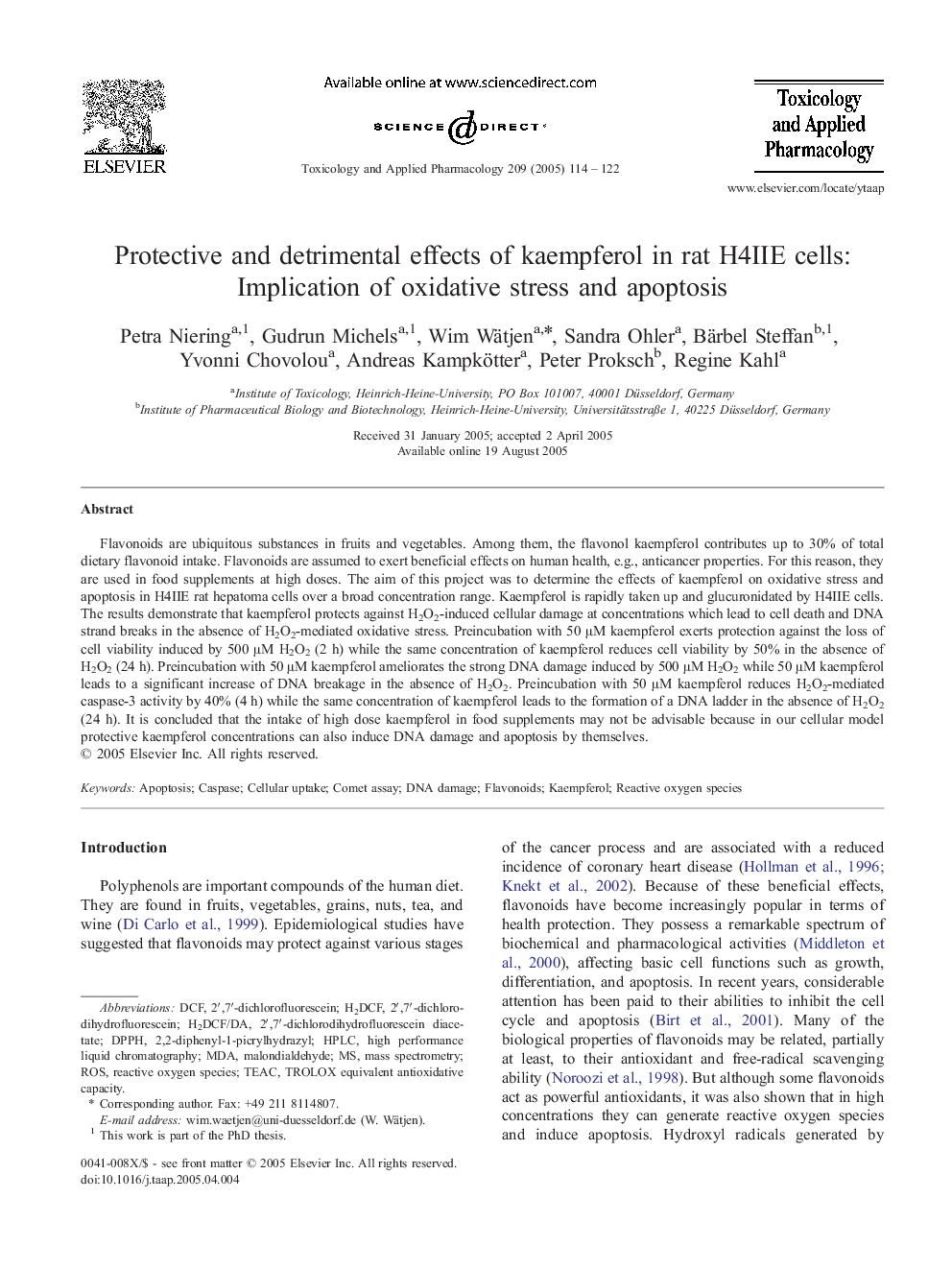| Article ID | Journal | Published Year | Pages | File Type |
|---|---|---|---|---|
| 9017915 | Toxicology and Applied Pharmacology | 2005 | 9 Pages |
Abstract
Flavonoids are ubiquitous substances in fruits and vegetables. Among them, the flavonol kaempferol contributes up to 30% of total dietary flavonoid intake. Flavonoids are assumed to exert beneficial effects on human health, e.g., anticancer properties. For this reason, they are used in food supplements at high doses. The aim of this project was to determine the effects of kaempferol on oxidative stress and apoptosis in H4IIE rat hepatoma cells over a broad concentration range. Kaempferol is rapidly taken up and glucuronidated by H4IIE cells. The results demonstrate that kaempferol protects against H2O2-induced cellular damage at concentrations which lead to cell death and DNA strand breaks in the absence of H2O2-mediated oxidative stress. Preincubation with 50 μM kaempferol exerts protection against the loss of cell viability induced by 500 μM H2O2 (2 h) while the same concentration of kaempferol reduces cell viability by 50% in the absence of H2O2 (24 h). Preincubation with 50 μM kaempferol ameliorates the strong DNA damage induced by 500 μM H2O2 while 50 μM kaempferol leads to a significant increase of DNA breakage in the absence of H2O2. Preincubation with 50 μM kaempferol reduces H2O2-mediated caspase-3 activity by 40% (4 h) while the same concentration of kaempferol leads to the formation of a DNA ladder in the absence of H2O2 (24 h). It is concluded that the intake of high dose kaempferol in food supplements may not be advisable because in our cellular model protective kaempferol concentrations can also induce DNA damage and apoptosis by themselves.
Keywords
MDAH2DCFTEACDcfDPPH2′,7′-dichlorodihydrofluorescein2′,7′-dichlorodihydrofluorescein diacetate2′,7′-dichlorofluorescein2,2-diphenyl-1-picrylhydrazylROSDNA damageCellular uptakeApoptosisComet assayMass spectrometryFlavonoidsmalondialdehydeKaempferolhigh performance liquid chromatographyHPLCcaspaseReactive oxygen species
Related Topics
Life Sciences
Environmental Science
Health, Toxicology and Mutagenesis
Authors
Petra Niering, Gudrun Michels, Wim Wätjen, Sandra Ohler, Bärbel Steffan, Yvonni Chovolou, Andreas Kampkötter, Peter Proksch, Regine Kahl,
